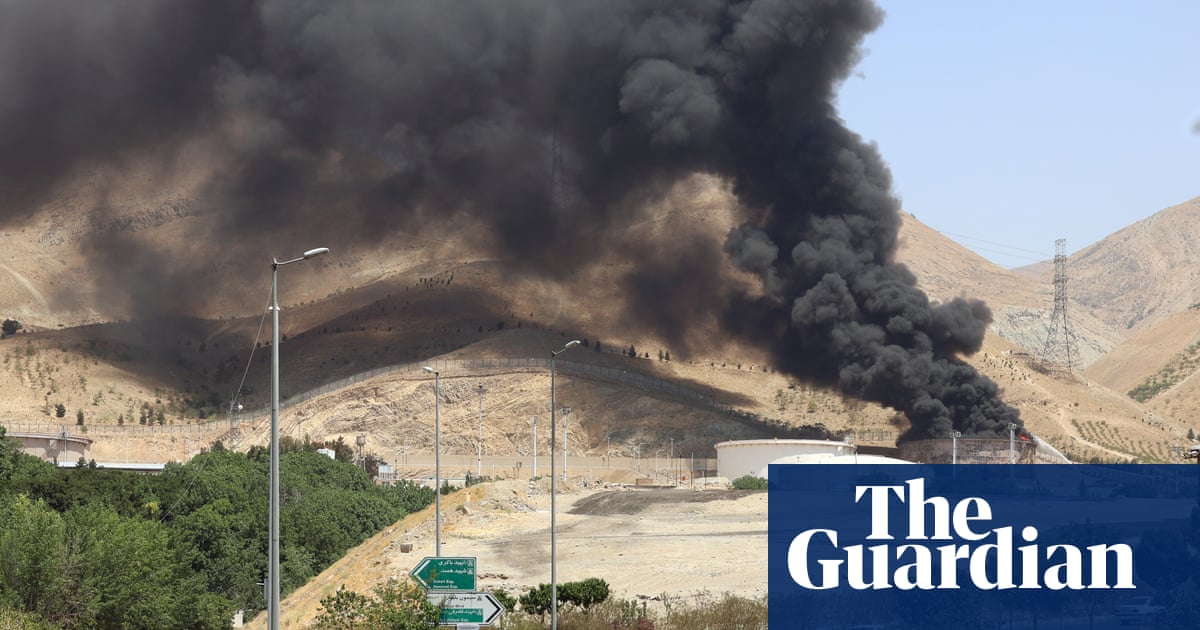 |
|
The article details a rapidly escalating conflict between Iran and Israel, marked by mutual attacks, threats, and a growing humanitarian crisis. The central point of contention revolves around Israel's airstrikes on Iranian nuclear facilities and Iran's retaliatory missile strikes on Israeli cities. This escalation has led Iran to threaten to withdraw from the Nuclear Non-Proliferation Treaty (NPT), a move that would have severe implications for global nuclear security and could potentially trigger a broader war in the Middle East. The escalating violence has resulted in significant casualties on both sides, with civilians bearing the brunt of the attacks. Iran's health ministry reported over 224 deaths, mostly civilians, while Israel has reported at least 23 civilian deaths from Iranian missile strikes. The conflict has also expanded to include attacks on oil and gas facilities, raising the specter of environmental disaster and further destabilizing the region. The Iranian foreign ministry spokesperson announced that the Majlis, Iran’s parliament, is preparing a bill to withdraw from the NPT. This threat underscores the potential for the conflict to escalate into a nuclear arms race in the Middle East, a scenario that many international actors have been striving to prevent. Iran maintains that it does not intend to develop nuclear weapons, citing a religious edict against weapons of mass destruction issued by Supreme Leader Ayatollah Ali Khamenei. However, Israel remains skeptical and continues to target Iranian nuclear facilities, claiming that Tehran is close to developing a bomb. This suspicion is at the core of the current conflict, with Israel seeking to maintain its nuclear monopoly in the region. The article also highlights the international response to the crisis, with G7 leaders convening to discuss the situation. The US president, Donald Trump, made ambiguous statements about the conflict, suggesting that the parties involved would "have to fight it out." This statement reflects the complexity of the situation and the lack of a clear plan to de-escalate the conflict. Germany, represented by Chancellor Friedrich Merz, emphasized the importance of preventing Iran from developing nuclear weapons while ensuring Israel's right to defend itself. The challenge lies in finding a diplomatic solution that addresses both concerns and prevents further escalation. The article further details the military aspects of the conflict, including the types of attacks being carried out by both sides, the effectiveness of Israel's air defense systems, and the impact of the attacks on civilian populations. Iran has launched numerous missile strikes on Israel, with some managing to evade Israel's multi-layered air defenses. Israel, in turn, has conducted airstrikes on targets within Iran, including nuclear facilities, military bases, and government buildings. The International Atomic Energy Agency (IAEA) has reported damage to Iranian nuclear facilities, including the uranium enrichment facility at Natanz and the nuclear complex in Isfahan. These attacks have raised concerns about the potential for a nuclear accident and the impact on the region's environment. The article concludes by highlighting the diplomatic efforts to resolve the conflict, including the cancellation of talks between the US and Iran and the ongoing discussions at the G7 summit. The situation remains highly volatile, with the potential for further escalation and a broader war in the Middle East. The international community faces the challenge of finding a diplomatic solution that addresses the underlying causes of the conflict and prevents a nuclear arms race in the region.
Source: Iran threatens to leave nuclear weapons treaty as Israeli bombing enters fourth day
